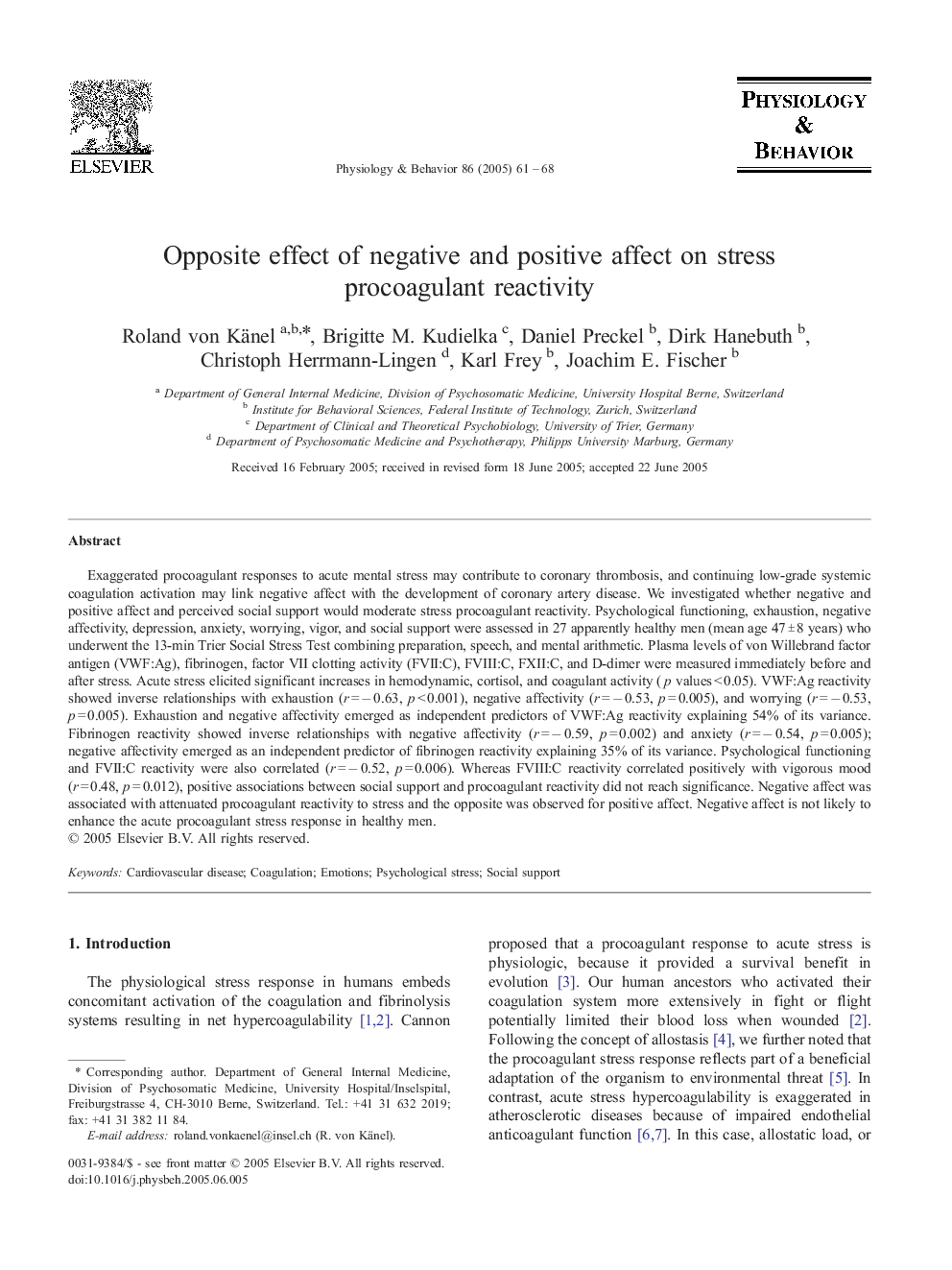| Article ID | Journal | Published Year | Pages | File Type |
|---|---|---|---|---|
| 9150027 | Physiology & Behavior | 2005 | 8 Pages |
Abstract
Exaggerated procoagulant responses to acute mental stress may contribute to coronary thrombosis, and continuing low-grade systemic coagulation activation may link negative affect with the development of coronary artery disease. We investigated whether negative and positive affect and perceived social support would moderate stress procoagulant reactivity. Psychological functioning, exhaustion, negative affectivity, depression, anxiety, worrying, vigor, and social support were assessed in 27 apparently healthy men (mean age 47 ± 8 years) who underwent the 13-min Trier Social Stress Test combining preparation, speech, and mental arithmetic. Plasma levels of von Willebrand factor antigen (VWF:Ag), fibrinogen, factor VII clotting activity (FVII:C), FVIII:C, FXII:C, and D-dimer were measured immediately before and after stress. Acute stress elicited significant increases in hemodynamic, cortisol, and coagulant activity (p values < 0.05). VWF:Ag reactivity showed inverse relationships with exhaustion (r = â 0.63, p < 0.001), negative affectivity (r = â 0.53, p = 0.005), and worrying (r = â 0.53, p = 0.005). Exhaustion and negative affectivity emerged as independent predictors of VWF:Ag reactivity explaining 54% of its variance. Fibrinogen reactivity showed inverse relationships with negative affectivity (r = â 0.59, p = 0.002) and anxiety (r = â 0.54, p = 0.005); negative affectivity emerged as an independent predictor of fibrinogen reactivity explaining 35% of its variance. Psychological functioning and FVII:C reactivity were also correlated (r = â 0.52, p = 0.006). Whereas FVIII:C reactivity correlated positively with vigorous mood (r = 0.48, p = 0.012), positive associations between social support and procoagulant reactivity did not reach significance. Negative affect was associated with attenuated procoagulant reactivity to stress and the opposite was observed for positive affect. Negative affect is not likely to enhance the acute procoagulant stress response in healthy men.
Related Topics
Life Sciences
Biochemistry, Genetics and Molecular Biology
Physiology
Authors
Roland von Känel, Brigitte M. Kudielka, Daniel Preckel, Dirk Hanebuth, Christoph Herrmann-Lingen, Karl Frey, Joachim E. Fischer,
